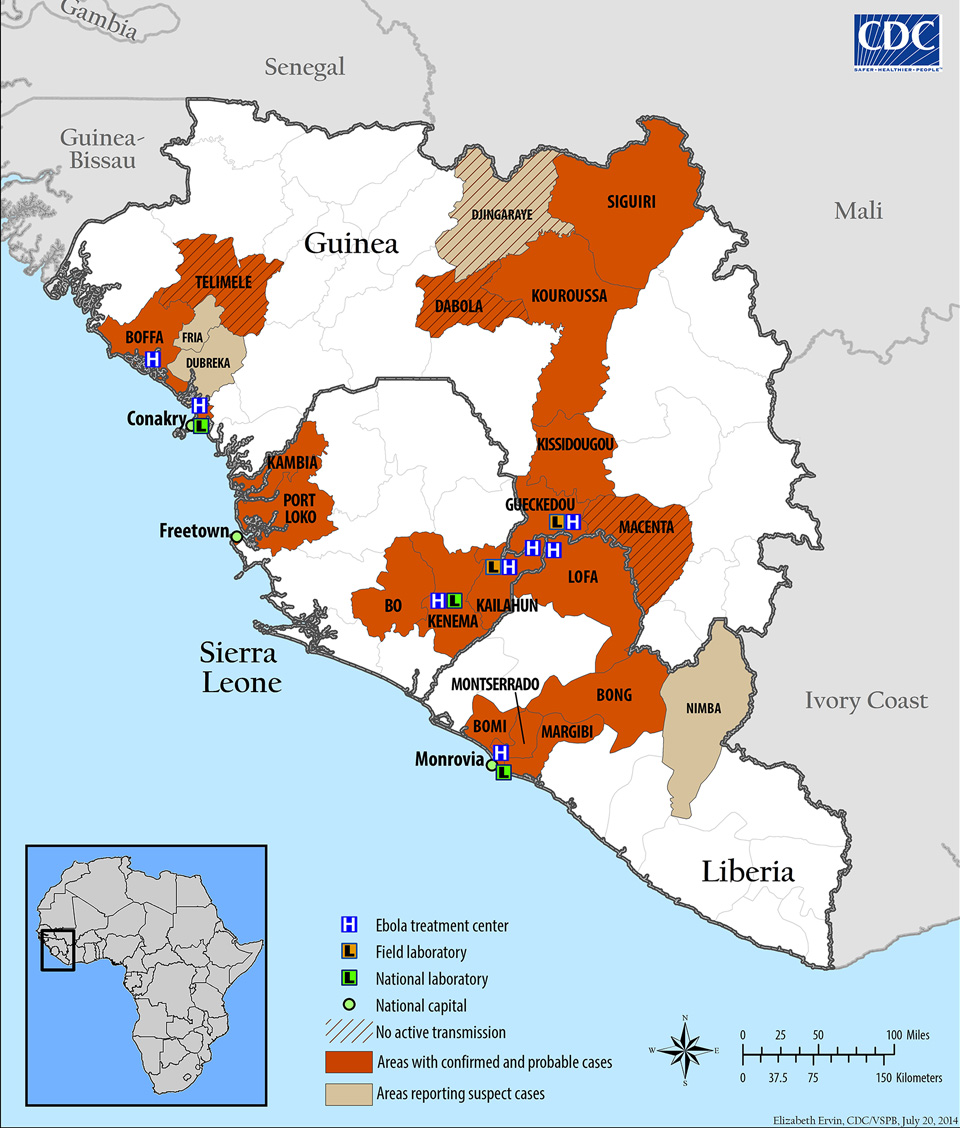The US Centers for Disease Control and Prevention raised its travel health alert to Level 3 for Guinea, Liberia and Sierra Leone, and to Level 2 for Nigeria. British Airways and Emirates have already cancelled flights to destinations in these countries, probably to be followed by other carriers.
“The air transport industry has dealt with several outbreaks of communicable diseases in recent years. The global response to communicable diseases is governed by the WHO’s International Health Regulations. Airlines follow guidance material which has been developed by WHO, ICAO and IATA,” said IATA in a statement.
The World Health Organization (WHO) states that:
The risk of a tourist or businessman/woman becoming infected with Ebola virus during a visit to the affected areas and developing disease after returning is extremely low, even if the visit included travel to the local areas from which primary cases have been reported. Transmission requires direct contact with blood, secretions, organs or other body fluids of infected living or dead persons or animal, all unlikely exposures for the average traveler. Tourists are in any event advised to avoid all such contacts.
The CDC also released a map with the current affected areas:

By August 4, the suspected and confirmed case count had reached 1603 people, with 887 suspected case deaths. The number of laboratory confirmed cases was 1009. The country with the most suspected case deaths was Guinea, with 358 deceased, followed by Sierra Leone, with 273, and Liberia, with 255. So far, Nigeria has only 4 suspected and confirmed cases, and 1 death.
Currently, the affected districts in Guinea are Conakry, Guéckédou, Macenta, Kissidougou, Dabola, Djingaraye, Télimélé, Boffa, Kouroussa, Dubreka, Fria, Siguiri, and Pita. These are areas that should be avoided by travelers, and healthy residents.
Travelers should also know that there are no FDA approved vaccines for Ebola, and no drugs. The only standard treatment for Ebola remains supportive therapy. An experimental treatment, ZMapp, is currently being developed by Mapp Biopharmaceutical Inc. CDC offers more information about experimental treatments and vaccines for Ebola on its site.